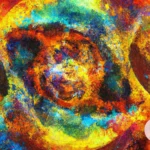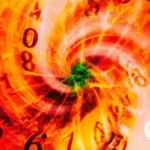Ancient Chinese Philosophy: Unlocking the Mysteries of Numerology
From the depths of time, ancient Chinese philosophy has fascinated scholars with its profound wisdom and intricate system of beliefs. One aspect that particularly stands out is the significant influence of numerology within this philosophy. Numerology, the study of numbers and their spiritual significance, permeates various aspects of ancient Chinese thought, including the concepts of yin and yang, the five elements theory, and the four pillars of destiny. By delving into the fascinating world of numerology, we can unravel the hidden meanings behind these philosophical ideas and gain a deeper understanding of the ancient Chinese civilization’s worldview. Join us on a journey through time as we explore the profound influence of numerology in ancient Chinese philosophy.
Ancient Chinese Philosophy: An Overview
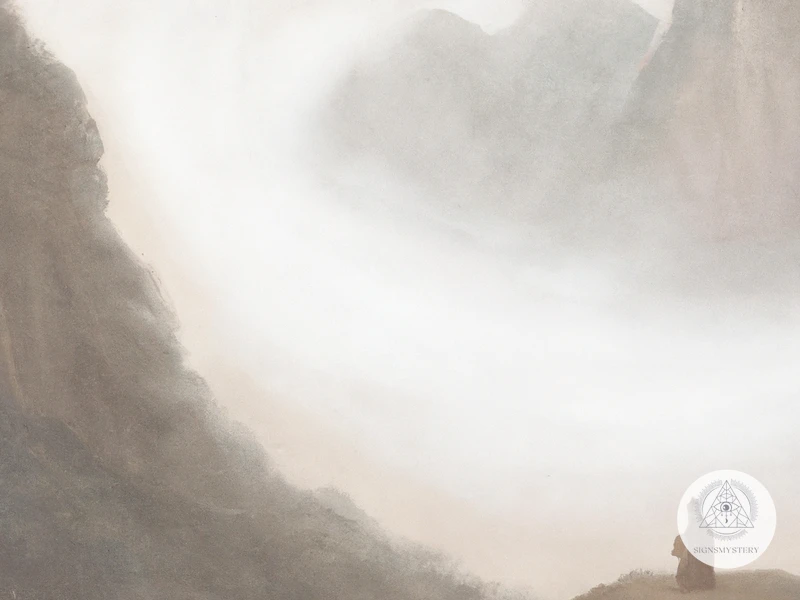
Ancient Chinese philosophy is a rich tapestry of ideas and beliefs that have profoundly shaped the culture and society of China for centuries. Rooted in the works of influential thinkers such as Confucius, Laozi, and Zhuangzi, this philosophy encompasses a wide range of topics, including ethics, morality, governance, and spirituality. At its core, ancient Chinese philosophy seeks to explore the fundamental principles of existence and human nature, as well as the relationships between individuals, society, and the cosmos. It emphasizes the cultivation of virtues, harmony between individuals and their environment, and the pursuit of a balanced and fulfilling life. Central to this philosophy are concepts such as the Dao, which represents the underlying principle of the universe, and the pursuit of inner harmony and self-realization. By understanding the fundamental tenets of ancient Chinese philosophy, we can gain profound insights into the worldview and values of the Chinese civilization throughout history. For a deeper understanding of the influence of numerology in ancient Chinese philosophy, let’s explore some of the key numerological concepts that underpin this intricate belief system.
Numerological Concepts within Ancient Chinese Philosophy
Ancient Chinese philosophy incorporates various numerological concepts that weave together to form a comprehensive understanding of the universe and human existence. One key numerological concept is the symbolism of yin and yang, representing the duality and interconnectedness of opposing forces. Yin, associated with femininity, darkness, and passivity, harmonizes with yang, associated with masculinity, light, and activity, to create a dynamic balance in all aspects of life. Another important concept is the Five Elements Theory, which categorizes the world into five elements: wood, fire, earth, metal, and water. These elements are believed to interact and influence the natural world and human affairs. Additionally, the Four Pillars of Destiny, based on an individual’s birth year, month, day, and hour, provide insight into one’s character, destiny, and potential. Embracing these numerological concepts allows individuals to navigate their lives, make decisions, and cultivate harmony with the cosmic energies that shape their existence. For a deeper understanding of numerology and its role in relationships, check out the article on decoding relationship numerology.
The Yin and Yang Symbolism
The Yin and Yang Symbolism is a fundamental concept within ancient Chinese philosophy and plays a vital role in understanding the balance and harmony of the universe. Yin and Yang represent two opposing yet complementary forces that permeate all aspects of existence. Yin symbolizes darkness, femininity, passivity, and the receptive energy, while Yang represents light, masculinity, activity, and the assertive energy. The concept of Yin and Yang is deeply rooted in numerology, as they are assigned numerical values: Yin is associated with even numbers, and Yang is associated with odd numbers. This symbolism highlights the dynamic interplay and interconnectedness of contrasting elements. The Yin and Yang philosophy teaches that everything in the universe is in a constant state of flux and that harmony is achieved when these opposing forces are balanced. This concept extends to every facet of life, including relationships, health, and nature. Just as Yin and Yang are interconnected, so too is the universe interconnected with all living beings. Explore our articles on awakening the heart chakra and tarot numerology to delve deeper into the interconnected nature of ancient Chinese philosophy and explore its profound impact on spiritual and self-development practices.
The Five Elements Theory
The Five Elements Theory, also known as Wu Xing, is a cornerstone of ancient Chinese philosophy and plays a significant role in the understanding of numerology. This theory posits that everything in the universe is composed of five fundamental elements: Wood, Fire, Earth, Metal, and Water. Each element represents different aspects of life and nature and is associated with specific characteristics, energies, and cycles.
Wood represents growth, creativity, and flexibility. It symbolizes the spring season and is associated with the liver and gallbladder in the human body. Fire embodies passion, action, and transformation and is related to the summer season and the heart and small intestine. Earth signifies stability, nurturing, and harmony. It represents the transitional seasons of late summer and late winter and is linked to the spleen and stomach.
Metal represents strength, discipline, and organization. It is associated with the autumn season, the lungs, and the large intestine. Water embodies adaptability, wisdom, and the flow of life. It symbolizes the winter season and is related to the kidneys and bladder.
The Five Elements Theory also explores the interactions between these elements, which are depicted by creation and destruction cycles. In the creation cycle, each element supports and nourishes the next one in a continuous flow of energy. For example, Wood feeds Fire, Fire creates Earth, Earth produces Metal, Metal holds Water, and Water nourishes Wood.
On the other hand, the destruction cycle describes how each element can weaken or control another element. Wood can break through Earth, Earth can absorb Water, Water can extinguish Fire, Fire can melt Metal, and Metal can cut Wood.
Understanding the Five Elements Theory allows one to analyze and interpret various aspects of life, from personal characteristics and relationships to the cycles of nature and the energy present in different environments. This theory forms a fundamental basis for numerological analysis by assigning numerical values and qualities to each element. By examining the interactions and balances between these elements, ancient Chinese philosophers and numerologists gain insights into the essence of existence and the interconnectedness of all things.
Four Pillars of Destiny
The Four Pillars of Destiny, also known as Ba Zi, is a numerological system that plays a significant role within ancient Chinese philosophy. It is a method of forecasting and analyzing a person’s life based on their birth year, month, day, and hour. Each pillar represents a different aspect of an individual’s life, including their personality traits, strengths, weaknesses, and potential for success in various endeavors. The Four Pillars of Destiny are based on the belief that each person’s life is influenced by a combination of five elements – wood, fire, earth, metal, and water – and the cosmic forces represented by the twelve animals of the Chinese zodiac. By analyzing the interactions and relationships between these elements, the Four Pillars of Destiny provide insights into a person’s destiny and offer guidance on how to navigate life’s challenges and make the most of opportunities. This system was not only used for personal divination but also played a crucial role in imperial court decision-making, marriage compatibility assessments, and even major events in Chinese history. The Four Pillars of Destiny exemplify how numerology was integrated into multiple aspects of ancient Chinese society, reinforcing the belief in the interconnectedness of all things and the influence of cosmic energies on human lives.
Numerology’s Influence in Chinese Philosophy
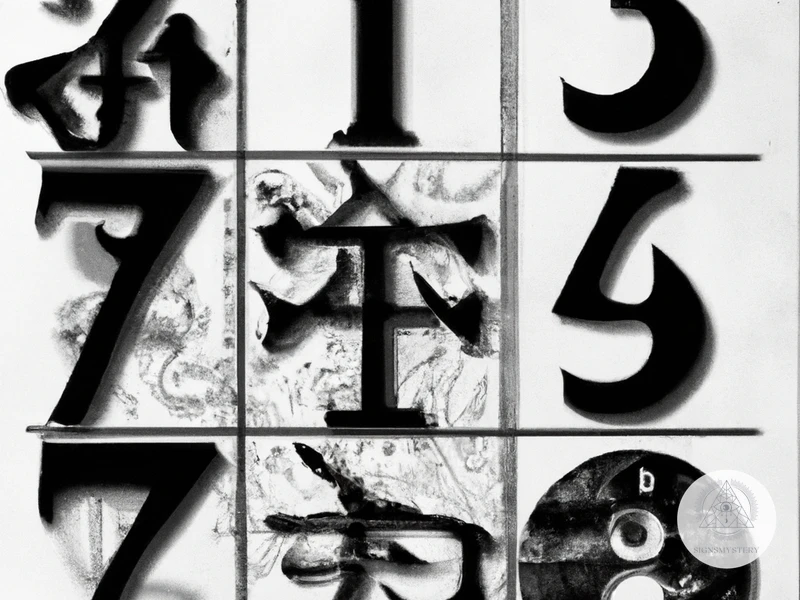
Numerology’s influence in Chinese philosophy cannot be understated. It weaves its way through the very fabric of ancient Chinese thought, leaving its mark on various aspects of philosophical concepts and practices. One of the primary ways numerology influences Chinese philosophy is through the pursuit of harmony and balance. Ancient Chinese philosophers believed that numbers held inherent qualities and symbolic meanings that reflected the balance of the universe. The use of numbers in divination and fortune-telling was another way in which numerology influenced Chinese philosophy, as it was believed that numbers could reveal cosmic insights and guide individuals in making important decisions. Additionally, numerology played a role in understanding the cosmic energy and universal order, helping individuals align themselves with the natural flow of life. By incorporating numerological principles into their philosophical framework, ancient Chinese thinkers sought to unlock the mysteries of existence and uncover the hidden connections between numbers, nature, and the human experience.
Harmony and Balance
In ancient Chinese philosophy, the concept of “Harmony and Balance” holds great significance. Numerology plays a crucial role in understanding and achieving this harmony and balance in various aspects of life. According to Chinese numerology, each number carries a unique vibration and energy. By understanding and aligning with these energies, individuals can cultivate harmony within themselves and their surroundings.
One important aspect of harmony and balance in numerology is the concept of complementary forces, represented by yin and yang. Yin is associated with receptive, feminine energy, while yang represents active, masculine energy. These opposing yet complementary forces are believed to exist in everything, creating a dynamic interplay that brings about balance. In numerology, even numbers are associated with yin energy, while odd numbers represent yang energy. This understanding helps individuals recognize the importance of both passive and active qualities, and encourages them to seek a balance between the two.
Numerology in ancient Chinese philosophy emphasizes the importance of understanding the interconnectedness of all things. Just as numbers are interconnected and influence one another, everything in the universe is believed to be interconnected and constantly in a state of flux. This interconnectedness is reflected in the Five Elements Theory, where each element (wood, fire, earth, metal, and water) represents different aspects of nature and is associated with specific numbers. By understanding the relationships and interactions between these elements and numbers, individuals can seek harmony and balance in their lives.
Numerology also provides guidance for decision-making, encouraging individuals to make choices that promote balance and harmony. By analyzing the numerical value of names, dates, and events, individuals can gain insights into the potential outcomes and energies associated with their choices. This helps in aligning their actions with the principles of harmony and balance.
In essence, the concept of harmony and balance in ancient Chinese philosophy, rooted in the principles of numerology, teaches individuals to strive for equilibrium in all aspects of life. By understanding the energies and vibrations associated with numbers, individuals can cultivate harmony within themselves, their relationships, and their environment, ultimately leading to a more fulfilling and balanced existence.
Divination and Fortune-telling
Within ancient Chinese philosophy, divination and fortune-telling hold great significance as they allow individuals to seek guidance and insight into various aspects of their lives and the future. Numerology plays a crucial role in these practices, providing a framework for interpreting the hidden meanings behind numbers and their relationship to cosmic energies.
One popular method of divination in ancient China is Zi Wei Dou Shu or “Purple Star Astrology.” This system of fortune-telling involves intricate calculations based on a person’s birth date and time to determine their destiny and life path. Each number and celestial body represents a unique aspect of an individual’s life, such as career, relationships, and health. By analyzing these numbers and their interplay, a skilled practitioner can offer valuable insights into a person’s future and advise on important decisions.
Another essential divination practice in ancient Chinese culture is I Ching, also known as the Book of Changes. It is a profound philosophical text that utilizes a set of 64 hexagrams, each composed of six stacked lines (either solid or broken). These hexagrams are seen as representing different universal energies and aspects of life. Through a process of casting or selecting hexagrams, individuals seek answers to specific questions or guidance on how to navigate challenging situations.
The art of face reading, or physiognomy, is another form of divination that incorporates numerology. Practitioners analyze the physical features and facial characteristics of individuals to gain insights into their personality traits, potential fortune, and destiny. Each facial feature is associated with particular numbers, and by combining these numerological interpretations with observation, skilled face readers can provide detailed assessments and predictions.
Divination and fortune-telling practices in ancient China were not just idle superstitions but were deeply intertwined with the philosophical understanding of cosmic energies and the belief in fate and destiny. These practices offered individuals a sense of control and guidance in navigating the complexities of life, helping them make informed decisions and find harmony within themselves and the world around them.
Practical Applications of Numerology in Ancient China
Numerology in ancient China was not merely a theoretical concept but had practical applications in various domains of life. One area where numerology played a significant role was in astrology, where the alignment of celestial bodies with specific numerical values determined predictions and interpretations. The Chinese believed that the positions of stars and planets at the time of a person’s birth influenced their character and destiny. Additionally, numerology was intricately linked to traditional Chinese medicine, where the balance of yin and yang energies, represented numerically, was considered essential for health and well-being. Feng Shui, the art of arranging one’s environment to harmonize with natural forces, also incorporated numerological principles. Buildings, cities, and grave sites were meticulously designed based on numerical calculations, harnessing the auspicious energy flow. In these practical applications, numerology was utilized to unlock deeper insights and guide important decisions in daily life, fortifying the belief in the cosmic order and interconnectedness of all things in ancient Chinese culture.
Astrology
Astrology plays a significant role in ancient Chinese culture and philosophy, where it is seen as a means to understand and interpret the influences of celestial bodies on human life. In Chinese astrology, the movement and alignment of the stars, planets, and other celestial entities are believed to have a profound impact on an individual’s personality, destiny, and overall well-being. The Chinese zodiac, consisting of twelve animal signs, is a key aspect of Chinese astrology. Each animal sign is associated with specific personality traits, strengths, and weaknesses, providing individuals with insights into their own character and potential destiny.
Astrology in ancient China is closely tied to the concept of qi, the vital life force that flows through all living things. The alignment of celestial bodies at the time of a person’s birth is believed to shape their unique energy profile and destiny. By consulting astrological charts and calculations, individuals can gain guidance on matters such as career choices, relationships, and personal development.
Astrology is
Subscribe to Our Newsletter
Sign up to receive the latest news and updates.
Medicine
Medicine holds a significant place in the practical applications of numerology within ancient Chinese philosophy. The principles of numerology are intertwined with traditional Chinese medicine, forming a holistic approach to healthcare. According to Chinese medical beliefs, the balance and flow of energy, known as qi, within the body are crucial for overall well-being and health. Numerology plays a role in diagnosing and treating ailments by analyzing and understanding the numerical associations of various elements within the body.
In traditional Chinese medicine, each of the human organs is believed to have a corresponding element, such as wood, fire, earth, metal, or water. These elements are further associated with specific numbers, directions, and seasons. By examining a person’s numerological profile, including their birth date and the numeric properties associated with their organs, practitioners gain insight into imbalances or weaknesses within the body’s energy system. This enables them to provide personalized treatment plans, including acupuncture, herbal remedies, and lifestyle adjustments, aimed at restoring harmony and promoting well-being.
Numerology is also used in Chinese medicine to determine auspicious dates and times for medical procedures, such as surgeries and consultations. The belief is that the specific combination of numbers and cosmic energies during a particular time can greatly impact the success and efficacy of medical interventions.
The influence of numerology in Chinese medicine extends beyond the physical realm. It is believed that each organ system is also connected to certain emotions and psychological states. By understanding the numerological associations between organs and emotions, Chinese medicine practitioners can offer holistic healing that addresses not only the physical symptoms but the emotional well-being of the patient as well.
Numerology plays a vital role in traditional Chinese medicine, offering a unique perspective on diagnosing, treating, and preventing ailments. By examining the numerological aspects of the human body and its connection to cosmic energies, Chinese medicine leverages the power of numbers to promote harmony, balance, and overall well-being in individuals.
Feng Shui
Feng Shui, an ancient Chinese practice, is deeply rooted in the principles of numerology and its influence on the energy flow within a space. Literally meaning “wind and water,” Feng Shui focuses on harmonizing the environment to create balance and positive energy. This practice believes that the arrangement of objects and structures can affect the flow of Qi, or life force energy, in a space, thereby influencing the well-being and fortune of its occupants. Numerology plays a significant role in Feng Shui, with specific numbers being associated with different elements and energies. For example, the number 8 is considered extremely auspicious in Feng Shui due to its phonetic similarity to the Chinese word for wealth. It is often associated with financial success and prosperity. Similarly, the number 9 symbolizes completeness and wholeness, making it a desirable number for overall well-being. The placement of objects, furniture, and structures in a space is carefully considered in Feng Shui to ensure the harmonious flow of energies and to maximize the positive influence of numerology. By harnessing the power of numerology, Feng Shui practitioners aim to create spaces that promote balance, abundance, and harmony. Whether it’s arranging furniture, choosing auspicious colors, or incorporating specific elements, Feng Shui utilizes numerological principles to optimize the energy flow in a space and enhance the well-being of its inhabitants. For practical tips on how to apply numerology in the practice of Feng Shui, check out this article on Feng Shui Numerology Tips.
Conclusion
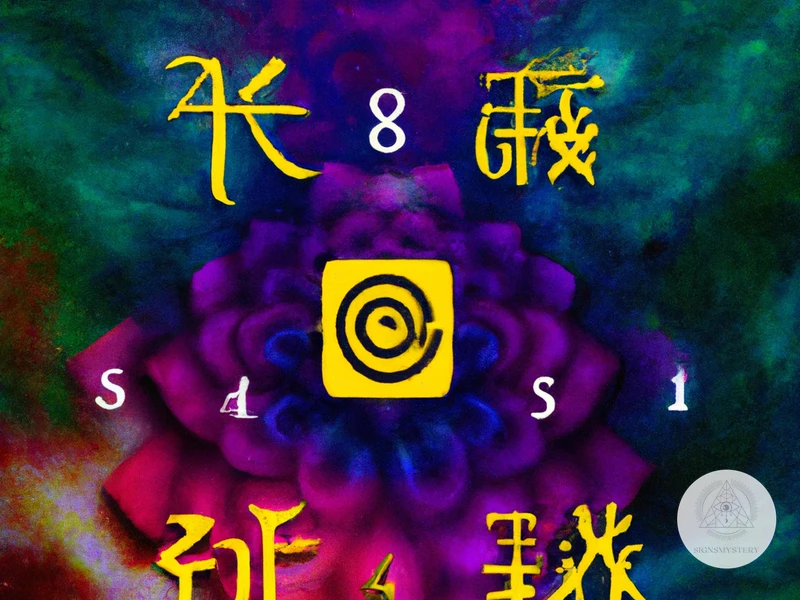
In conclusion, the influence of numerology in ancient Chinese philosophy is undeniable. Numerological concepts permeate various aspects of this rich philosophy, providing a framework for understanding the world, promoting harmony and balance, and unlocking the mysteries of the universe. From the symbolism of yin and yang to the four pillars of destiny and the five elements theory, numerology played a pivotal role in ancient Chinese thought. It provided a means of divination and fortune-telling, guiding individuals in making important life decisions. Moreover, numerology found practical applications in fields such as astrology, medicine, and feng shui, where it was used to decipher cosmic energies and promote well-being. Ancient Chinese philosophy and numerology offer profound insights into the interconnectedness of all things and emphasize the importance of living in harmony with the natural world. By delving into the mysteries of numerology, we can gain a deeper understanding of the wisdom and timeless truths contained within ancient Chinese philosophy. Whether seeking personal enlightenment, exploring cultural heritage, or simply marveling at the profound wisdom of our ancestors, the study of numerology in ancient Chinese philosophy continues to captivate and inspire.
Frequently Asked Questions
1. What is the significance of numerology in ancient Chinese philosophy?
Numerology holds great significance in ancient Chinese philosophy as it helps uncover the hidden meanings and symbolism behind numbers. It provides a framework for understanding the cosmic energy and universal order believed to govern the world.
2. How does numerology relate to the concepts of yin and yang?
Numerology plays a crucial role in interpreting the balance and interplay between yin and yang energies. It assigns numerical values to these opposing forces, allowing for a deeper understanding of their harmonious relationship and the continuous cycles of change.
3. What is the Five Elements Theory in ancient Chinese philosophy?
The Five Elements Theory, also known as Wu Xing, is a fundamental concept in ancient Chinese philosophy that correlates five basic elements—wood, fire, earth, metal, and water—with different aspects of the universe. Numerology plays a role in understanding the interactions and influences between these elements.
4. How are the Four Pillars of Destiny related to numerology?
The Four Pillars of Destiny, also called BaZi, is a system of fortune-telling that is deeply rooted in numerology. It uses a person’s birth date and time to generate a set of four pillars that provide insights into their destiny, personality traits, and potential life outcomes.
5. How does numerology help in achieving harmony and balance?
Numerology provides a framework for understanding the energetic balance and harmony between various elements in the universe. By aligning with the numerical energies, individuals can make conscious choices to achieve personal harmony and balance in all aspects of life.
6. Can numerology be used for divination and fortune-telling?
Absolutely. Numerology is closely intertwined with divination and fortune-telling practices in ancient Chinese philosophy. The interpretation of numbers provides valuable insights into future events, guiding individuals in making informed decisions for their personal and professional lives.
7. How does numerology connect with cosmic energy and universal order?
Numerology is believed to reveal the underlying cosmic energy and universal order that permeates the world. It helps individuals understand the interconnectedness of all things and their place within the grand tapestry of the universe.
8. What are the practical applications of numerology in ancient China?
Numerology found practical applications in ancient China in various fields such as astrology, medicine, and feng shui. It guided crucial decisions and provided insights into future outcomes, health treatments, and the arrangement of physical spaces.
9. How is numerology utilized in astrology?
In astrology, numerology plays a significant role in deciphering the cosmic influence of celestial bodies and their impact on individuals’ lives. Numerological calculations are used to analyze birth charts, determine auspicious dates, and understand the compatibility between individuals.
10. How does numerology contribute to the practice of feng shui?
Numerology forms the foundation of feng shui, the art of harmonizing spaces to enhance energy flow and promote well-being. The arrangement and positioning of objects, colors, and elements in a space are guided by numerological principles to create a harmonious environment.
References
- Magic Number 9, Number 9 in Chinese Culture
- Numerology in the Classics: Unfolding the Mystery of Life
- SPACE, TIME and NUMBER as a holistic unity in the Yijing
Frequently Asked Questions
1. How did numerology influence ancient Chinese philosophy?
Numerology played a significant role in shaping the ancient Chinese philosophy by providing a framework to understand cosmic energy, balance, and harmony in the universe.
2. What is the Yin and Yang symbolism in Chinese philosophy?
The Yin and Yang symbolism represents the two opposing forces that are interconnected and interdependent in the universe. It symbolizes the balance and harmony between contrasting elements, such as light and dark, hot and cold, and male and female.
3. What is the Five Elements Theory in Chinese numerology?
The Five Elements Theory is a concept in Chinese numerology that associates five elements – Wood, Fire, Earth, Metal, and Water – with different aspects of the universe and human life. It explains the interactions and relationships between these elements and how they shape the world around us.
4. What are the Four Pillars of Destiny in Chinese philosophy?
The Four Pillars of Destiny, also known as the Four Pillars of Ba Zi, is a concept in Chinese philosophy that uses a person’s birth date and time to determine their destiny. It analyzes the interaction between the year, month, day, and hour of birth to provide insights into an individual’s personality, relationships, and life events.
5. How does numerology promote harmony and balance in Chinese philosophy?
Numerology promotes harmony and balance in Chinese philosophy by emphasizing the importance of maintaining equilibrium in all aspects of life. It encourages individuals to align their actions, decisions, and surroundings with the natural flow of energy to achieve balance and harmony.
6. What role does numerology play in divination and fortune-telling?
Numerology plays a significant role in divination and fortune-telling practices in ancient Chinese philosophy. By analyzing numeric values associated with different aspects of life, such as birth dates, names, and events, numerology is used to make predictions and gain insights into the future.
7. How does numerology relate to cosmic energy in Chinese philosophy?
Numerology is closely linked to the concept of cosmic energy in Chinese philosophy. It suggests that numbers have inherent energetic vibrations that influence the harmony and order of the universe. By understanding these numeric vibrations, one can align themselves with the cosmic energy to enhance well-being and success.
8. What are some practical applications of numerology in ancient China?
Some practical applications of numerology in ancient China include astrology, medicine, and Feng Shui. Numerological calculations were used to determine auspicious dates for important events, diagnose and treat health conditions, and create harmonious living spaces.
9. How did astrology incorporate numerology in ancient Chinese culture?
Astrology in ancient Chinese culture incorporated numerology by assigning specific meanings and characteristics to each celestial body, based on their numeric associations. These numeric values were used to interpret astrological charts and make predictions about an individual’s destiny and fortune.
10. How did numerology influence traditional Chinese medicine?
Numerology influenced traditional Chinese medicine by providing a framework to understand the energetic balance in the human body. It was believed that each organ and meridian in the body was associated with a specific numeric value, and imbalances in these numbers could indicate health issues. Numerological principles were used to diagnose and treat these imbalances.



